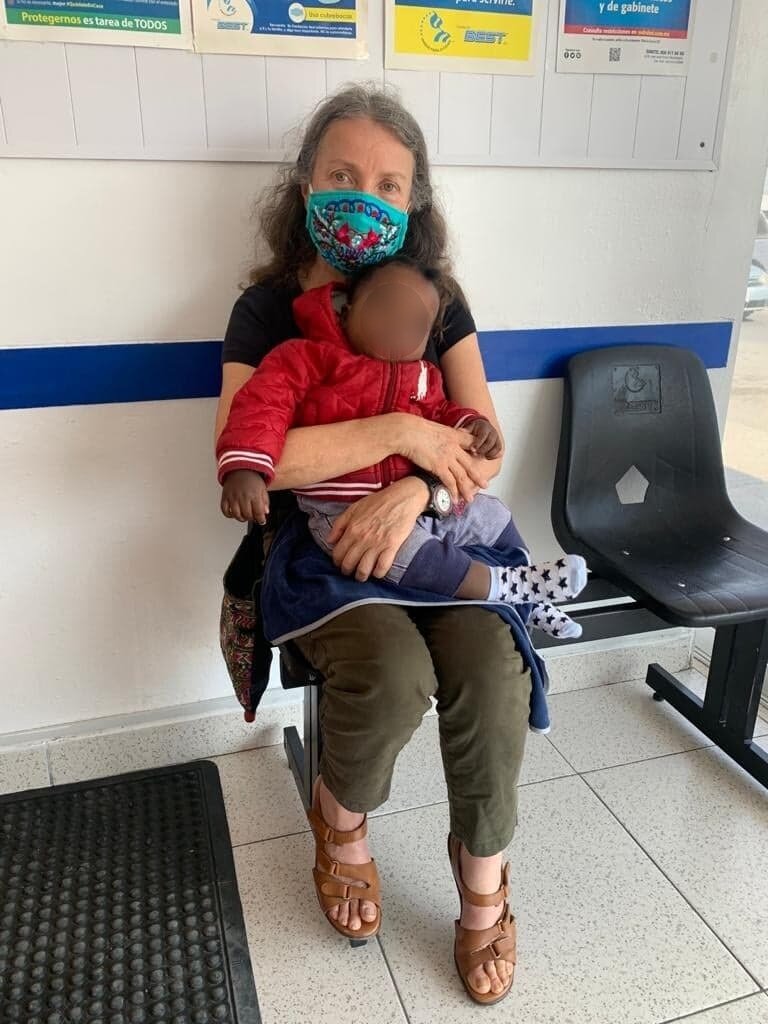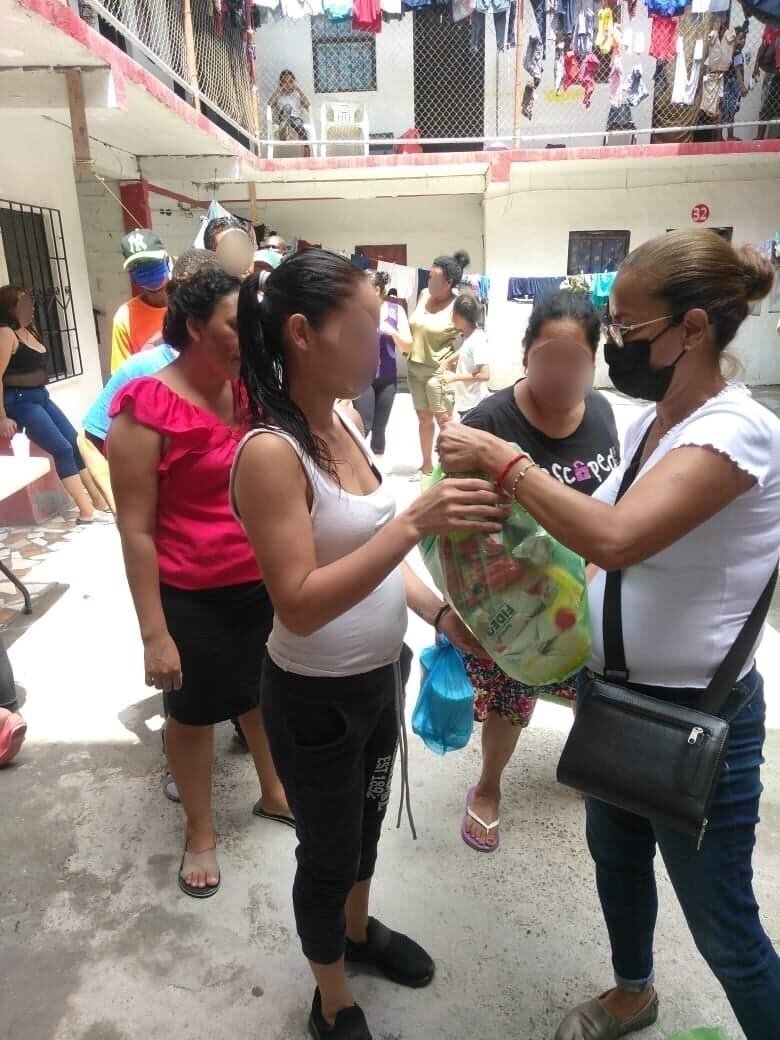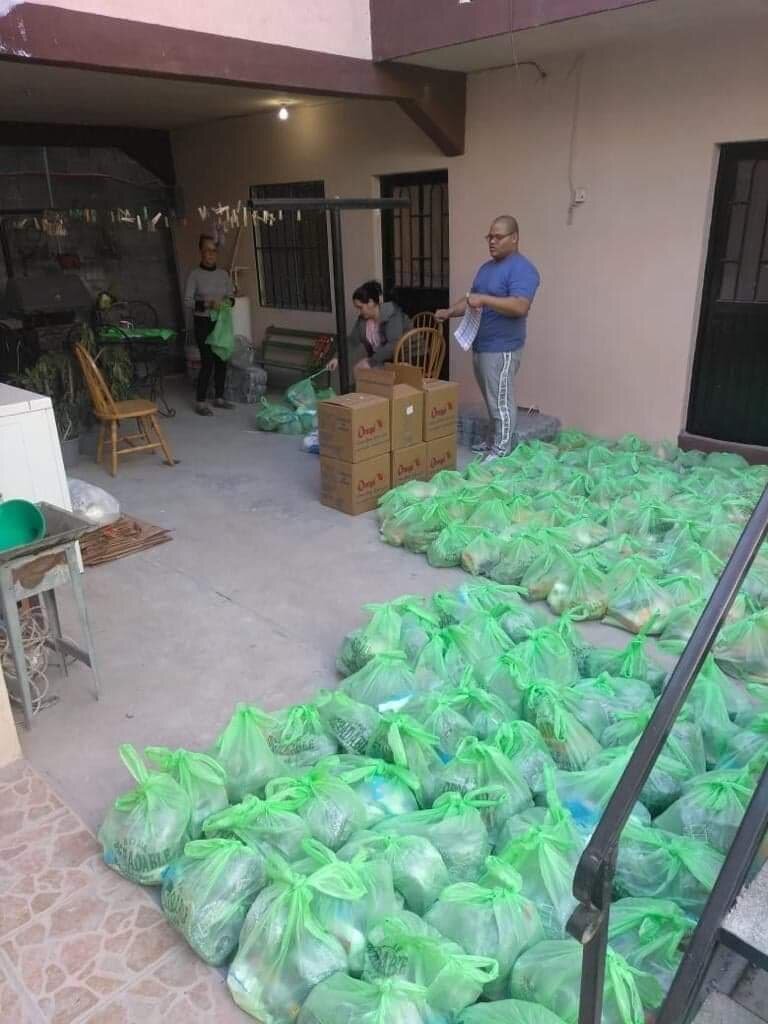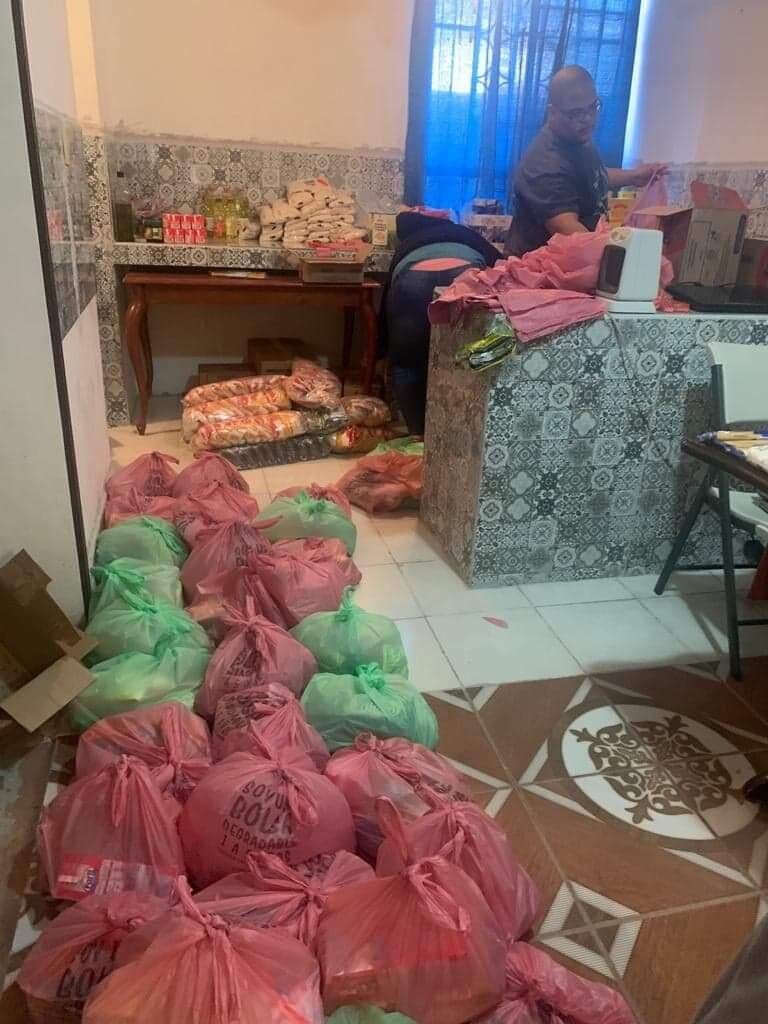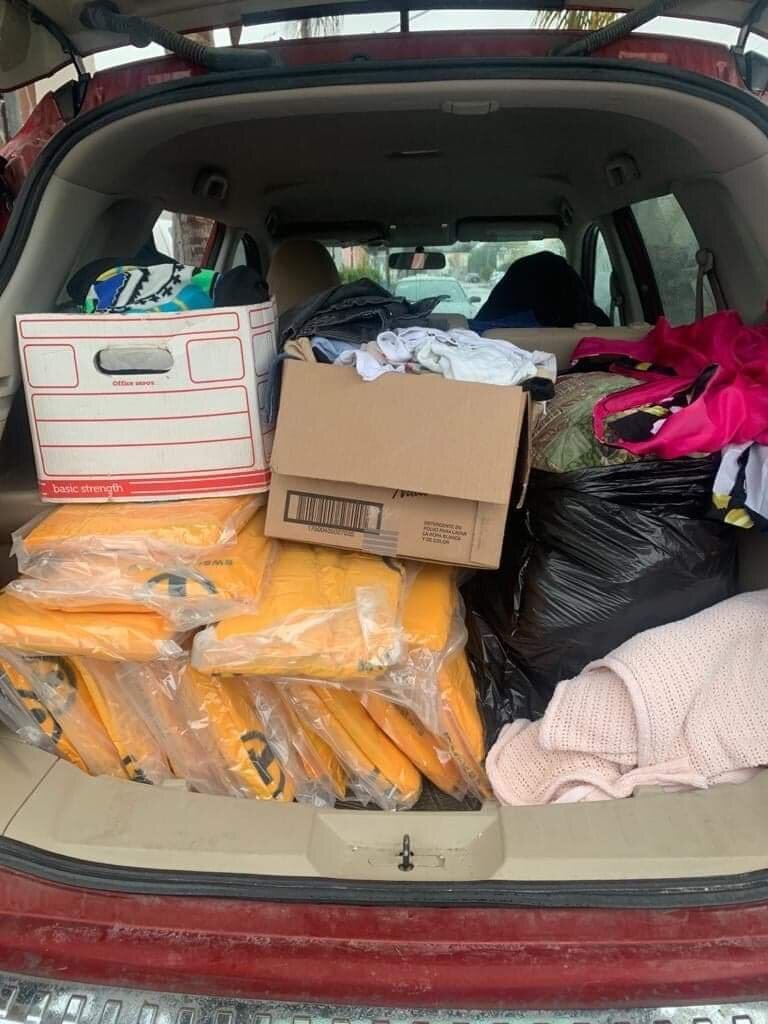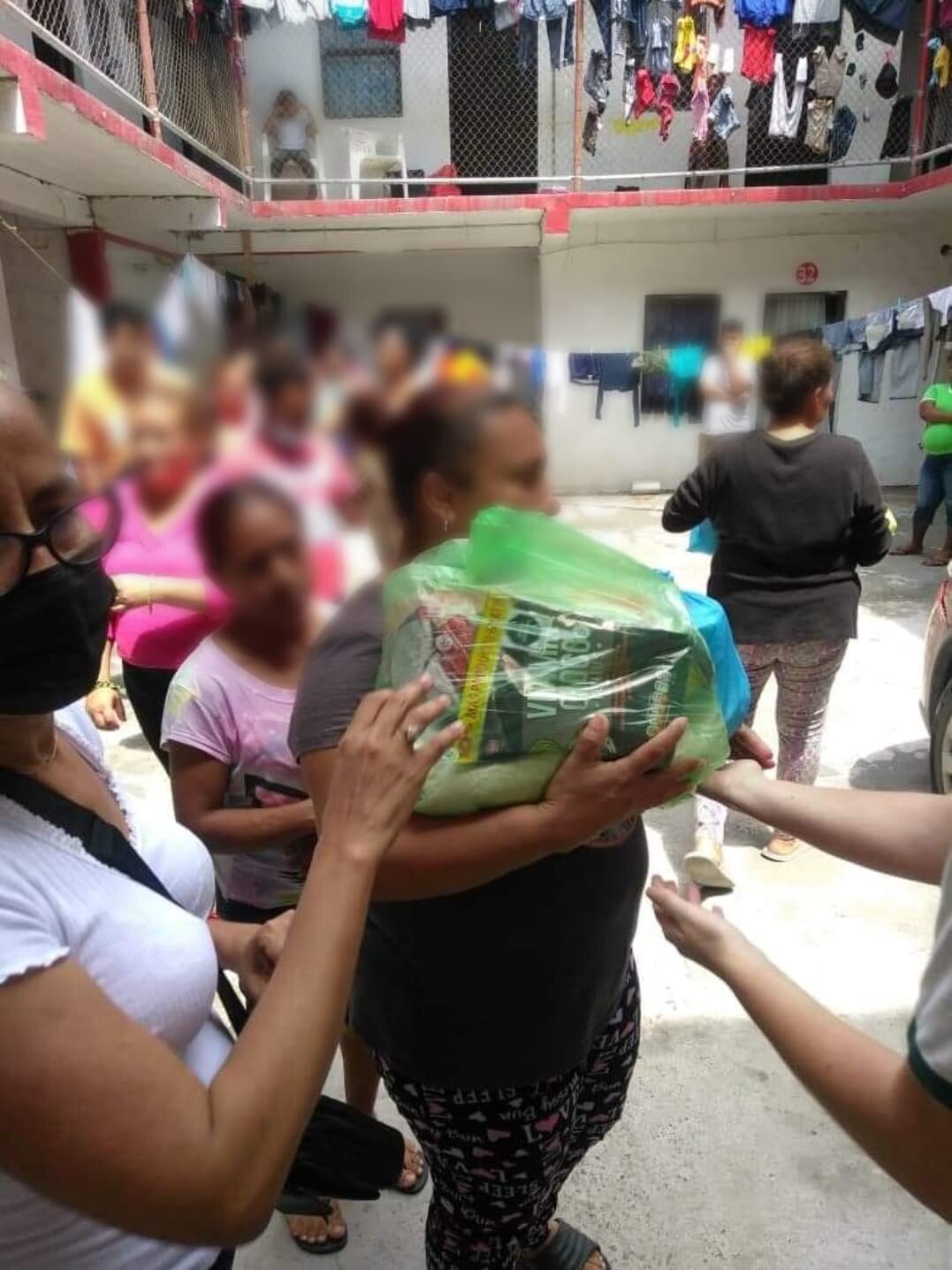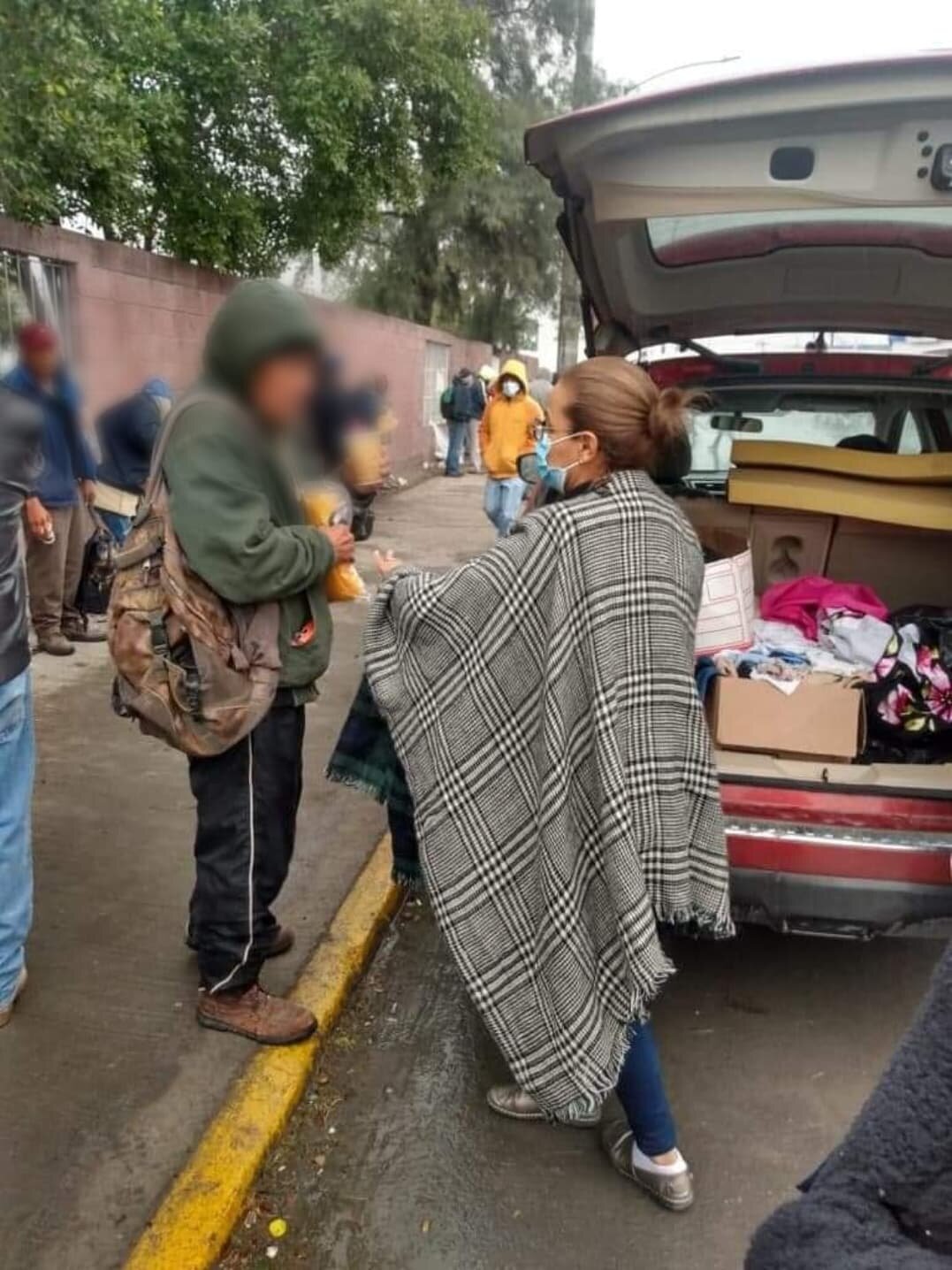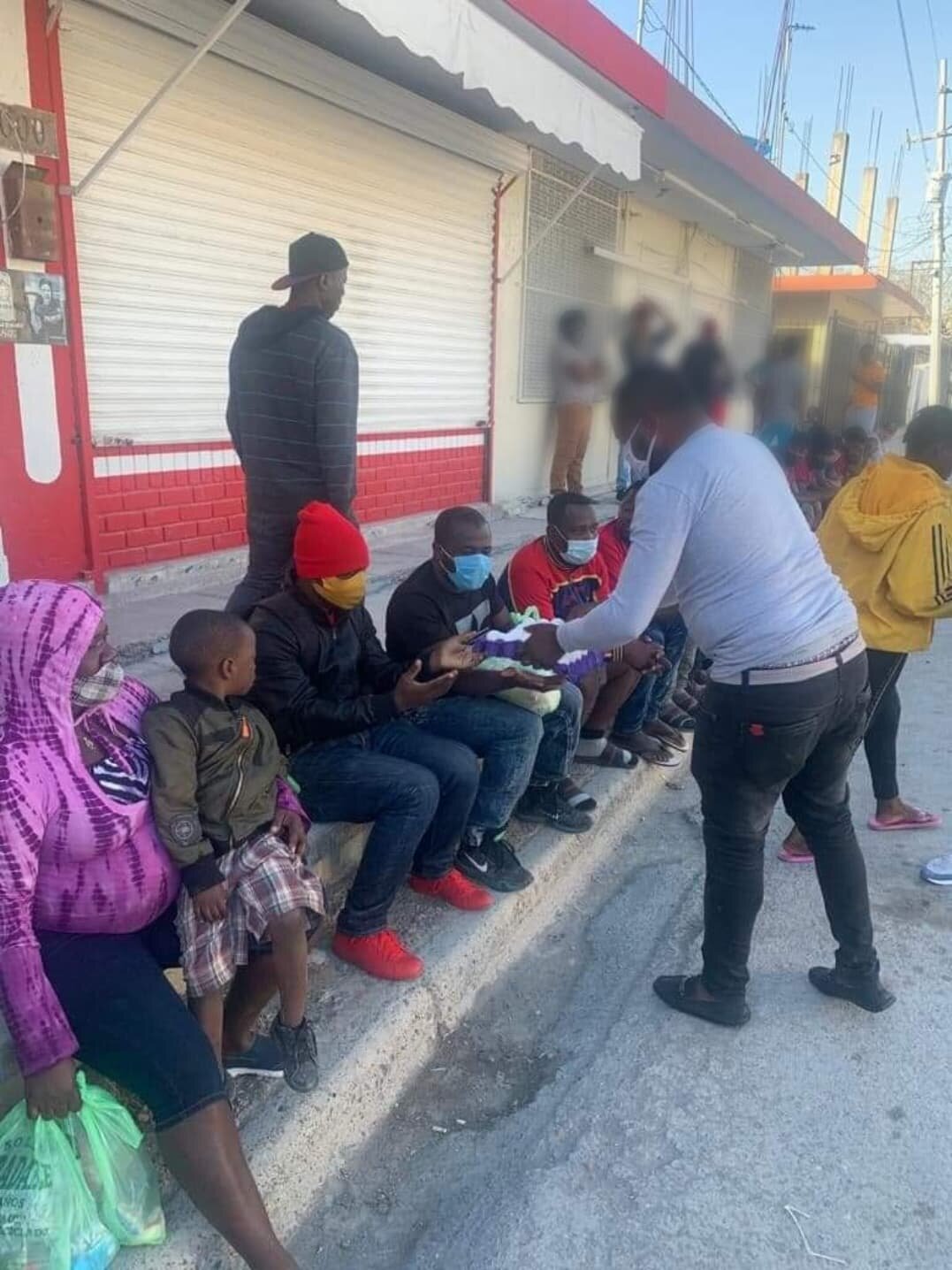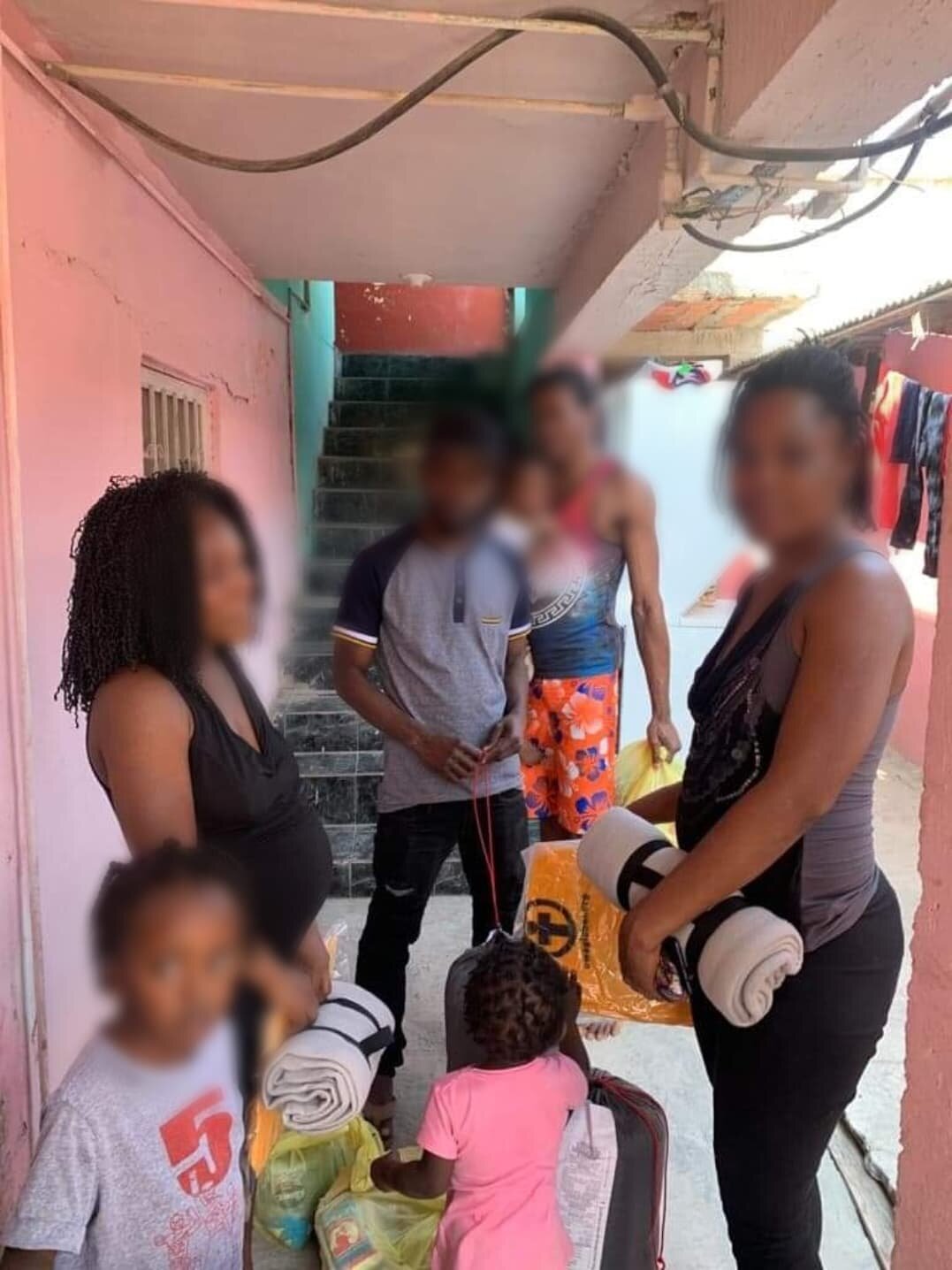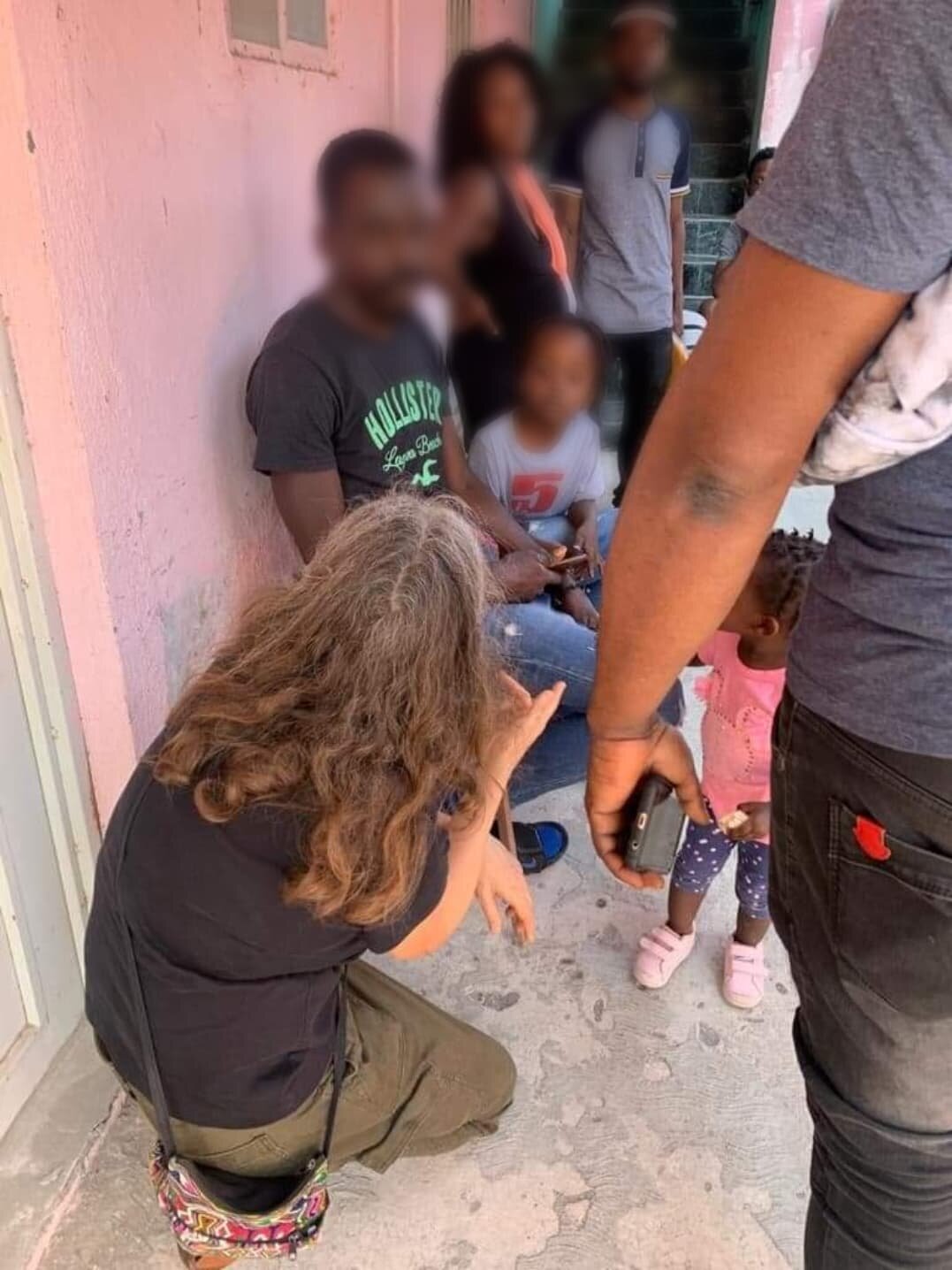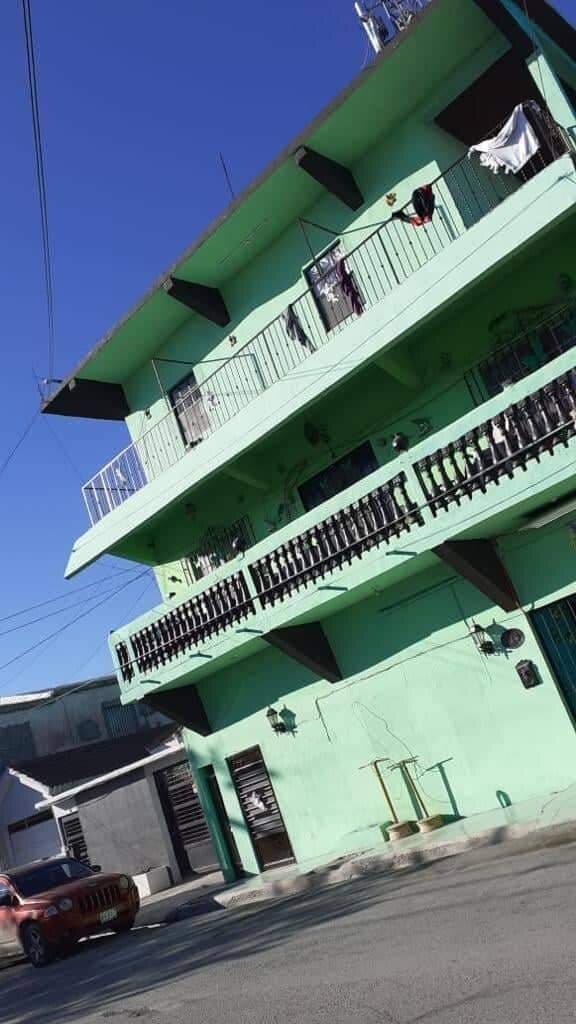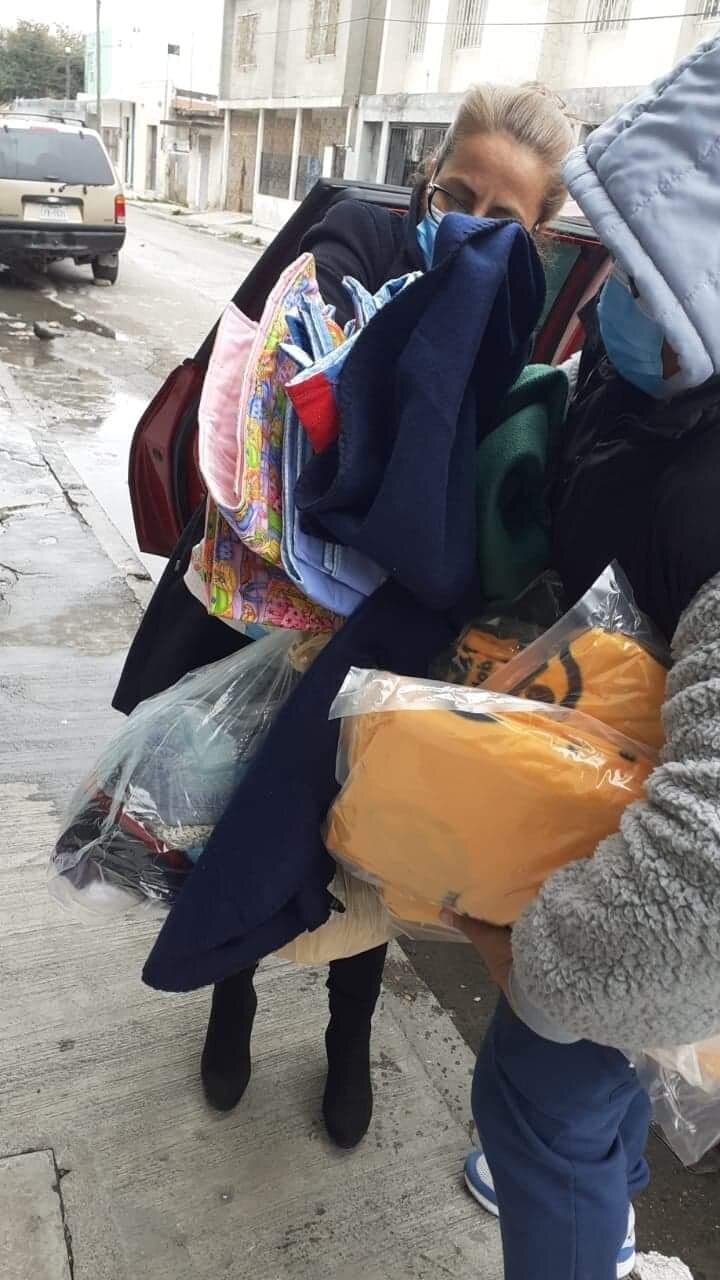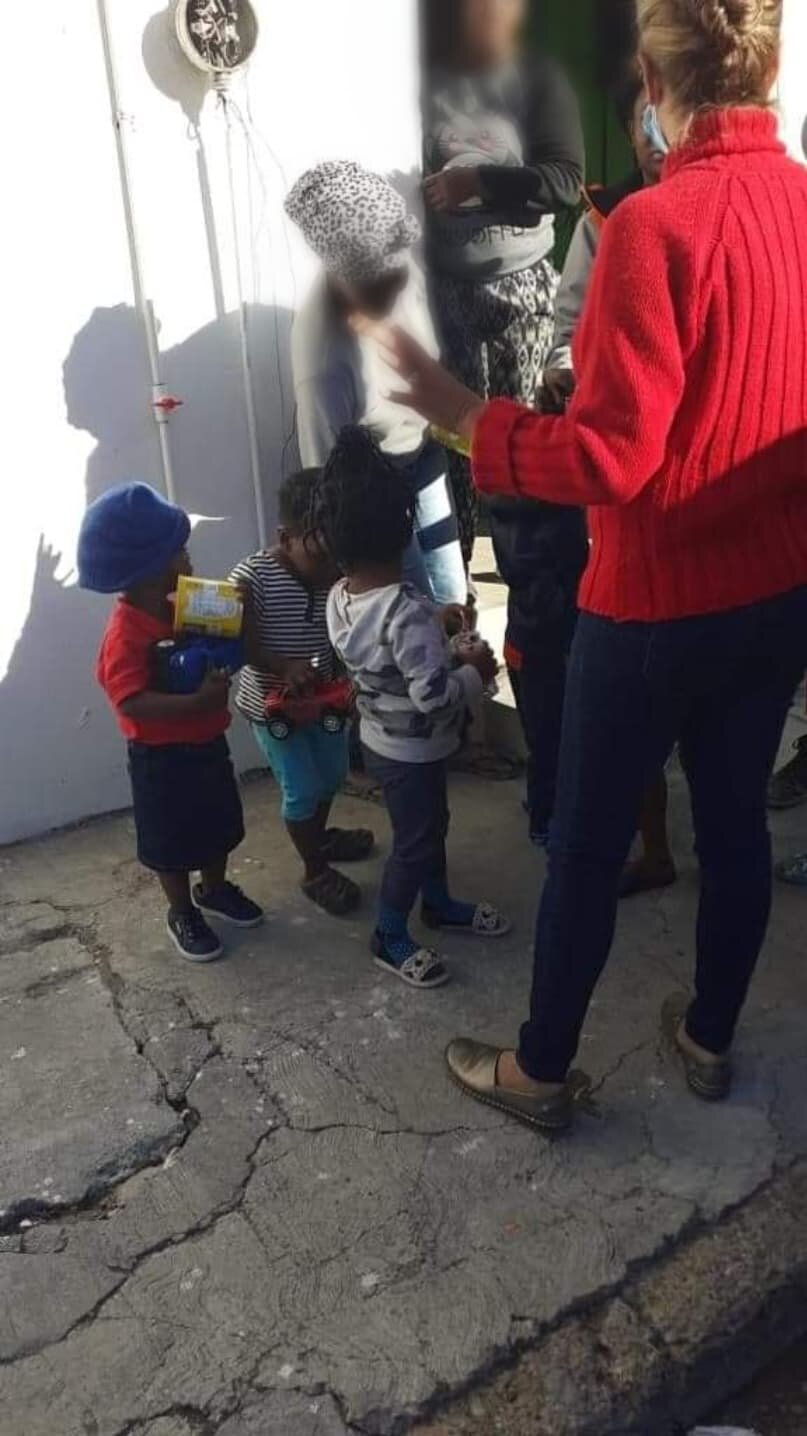REYNOSA PROJECT
Many of you have been asking about our work in Reynosa after seeing the news reports about Migrant families being turned away by U.S. authorities at the border. People are not being heard at all on their asylum requests, but are being turned back immediately under Title 42, which permits this action because of the pandemic. Of course, a simple covid test would make all this unnecessary. Moreover, countless other people cross the international bridge every day…truckers, businessmen, relatives and people like us who enter Mexico to do volunteer work then return to Texas at night. None of us are even tested. Asylum seekers are automatically turned back at the bridges, or after they cross the river. They quickly pile up in the small park at the foot of the bridge, where they run high risks of kidnapping, robberies and other abuse. We are moving them out as quickly as we can. The following shows our various support efforts. Our Tia Jennifer Harbury spends most of her days working in Reynosa, where she has been assisting migrant families since January 2017.
CURRENT TIAS REYNOSA PROGRAMS:
Emergency Passages to USA: All of the migrant families have suffered terrible persecution both back home and in Reynosa. Those now in the Plaza are in especial danger. Our Tia Jennifer rotates between the shelters and the Plaza and identifies some of the most terrible cases, such as extremely young children, broken limbs, infected wounds, pregnancies, severe illnesses (cancer, cerebral palsy for example), recently- escaped kidnapping victims still hunted by gangs, LGBQT persons, and other special vulnerabilities.
Jennifer then arranges for their immediate covid screening and transfers them to one of the shelters where they will be safe. She then interviews each family and writes up their case for review by the United States government. Most have been allowed to cross the bridge. To date she has been able to get more than 60 people safely out of Reynosa and is working on more. For everyone’s safety she works quietly and as out of public view as possible.
New Construction at Senda de Vida: As the flow of migrant families into the Plaza in Reynosa has increased, it has become obvious that we must greatly increase the amount of protected housing available to them. Both Senda de Vida and Casa de Migrantes are taking as many as they can, and the “hotels” or nearby tenement buildings are also often full, which has driven the rent up sharply. Pastor Hector of Senda de Vida owns a very large lot adjacent to Senda and has been constructing an enormous security wall around it out of blocks and mortar to provide a sheltered area. This should double the number of families he can receive. As soon as adequate toilets and showers are in, he will erect as many tents as possible and it should be possible to move a large part of the families into this protected zone. As soon as possible tents will be replaced by dormitories. The
Tias have provided most of the funding for this new construction. Pastor Hector himself has remarkable knowledge and experience with construction, and the labor has been provided by volunteers.
Emergency Housing: We believe it is crucial to move as many people out of the Plaza as we can, and into safe housing. The Mexican government has made this difficult by trying to put people in government shelters where they can be removed and deported; and by threatening to drag people out of the two Church sanctuaries, which is illegal. We are supporting both shelters on this issue. More importantly, we have started up an emergency rental assistance project through our local partner Lulu. Since both shelters are often filled to overflowing, the families have slowly but surely turned a group of nearby tenement buildings into migrants housing. There they are at least all together, and they are within a few blocks of both shelters, where they go for information, advice, food and medical care. Gangs have taken over some of these “hotels”, but we work with our partners to place people in the safe units, with basic food supplies and rent for one month. During that time Tia Jennifer can process some, they can find room at Senda, they can decide whether or not to move to a different area, or can they try and find local work.
Emergency COVID testing: When we transfer people into Senda de Vida to wait for permission to cross, they are required by local authorities to first have covid tests. They need rapid test results so that they can enter safety promptly. Those not at Senda must be tested before they can cross. This has been costly, at $45 each so far. We Tias paid for all people we were assisting, plus as many more as possible. We have found a lower cost provider; and understand that other health organizations will be providing services soon.
Direct Support to Mexican Shelters and Providers: The Angry Tias have provided substantial monthly support to both Senda de Vida and the Casa de Migrantes, for all aspects of their work to assist migrants, from paying electrical bills, to travel emergencies, to food and medical needs. We have also provided monthly support to Lulu, a local partner who works tirelessly to identify emergencies, to take people to doctors, fill prescriptions, and compile and distribute “dispensas”, or bags of basic foods, soaps and pampers to the migrant families in the “hotel” neighborhood. During the freeze she distributed blankets around the clock. We have great respect for the work our partners do. We have doubled the monthly allotment to all three for the last many months, giving the increasing needs. It the policy of the Tias to maintain confidentiality with regards to amounts, for security reasons.
Liaison Work: The Tias also provide substantial information we gather from the families and our Mexican partners, to enquiring national and international human rights networks,
as well as to our own state and federal leadership. This information currently includes the realities of the T 42 returnees, the covid complications, estimates of the numbers of people, and a description of the ongoing attacks from both gangs and officials. We both make policy suggestions as well as identify weaknesses in the current practices. Given security sensitivities, we do speak with the press as needed to inform the public, but we try to limit our public appearances as appropriate.
Background:
Our work in Reynosa has been ongoing for a very long time. One of our members, attorney Jennifer Harbury, began doing regular volunteer work there since January 2017. The new Trump administration had begun to illegally turn away all asylum seekers at the bridge even though there was no pandemic, and many were being kidnapped as soon as they reached the Mexican side. Jennifer began to accompany families who had been turned away and insisting to the immigration officials that the migrants had the right to request asylum and to be processed in the United States. Various lawsuits were brought, and the outright turn- arounds began to slow. The families were then required to camp out on the bridges to “wait their turns.” Many spent two weeks or more with their children in the extreme heat, sleeping on the cement, with no provisions of water food or even access to the waiting room toilets. We formed the Tias in response to this crisis.
Jennifer has always been the Tia in charge of our Reynosa project, and all of us have discussed together the different problems and projects since that time. Reynosa is quite different from other areas where we work, in that it is by far the most dangerous in terms of kidnapping and violence against migrants. There are two large and long- standing shelters, the Senda de Vida shelter run by Pastor Hector, and the Casa de Migrantes, run by Catholic Sisters. These two have always been centers of information, shelter, medical care and protection for the migrants, as well as coordinating and informing internationalists of the true situation. Jennifer has worked closely with them for many years, providing funding and legal assistance. When the pandemic forced the shelters to quarantine, they still helped to arrange for emergency housing in nearby tenements, provided urgently needed information and connections, medical services, and much more. Jennifer continued to work closely with them, providing funding, discussing problems, sharing legal information, and helping with emergency issues.
In addition the Tias work closely with our friend and partner Lulu, who began her human rights work in Reynosa when she was eight years old, accompanying her father on his rounds to assist the poor. We worked with her to gather a huge supply of blankets and blankets rolls to get people through the winter, and to pay for emergency doctor visits for the many sick children and pregnant women we encountered. We also contribute to her drive to provide basic support bags or “dispensas” to families in the “hotelitos”, and which include powdered rice, beans, oil, salt, soap, pampers and other necessities.
Our work in Reynosa changed when our national immigration policies shifted. Our current activities and priorities are outlined above.
We want to recognize and thank all of the Mexican and international Church people, volunteers and NGOs for the crucial work they are doing in Reynosa. It takes a village to deal with a humanitarian disaster of these proportions. We are proud to be working at their side.
